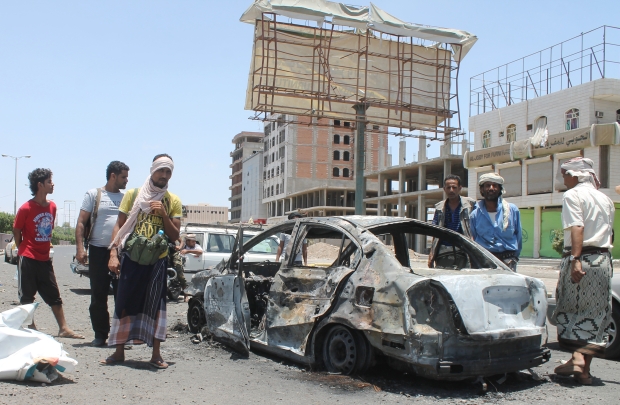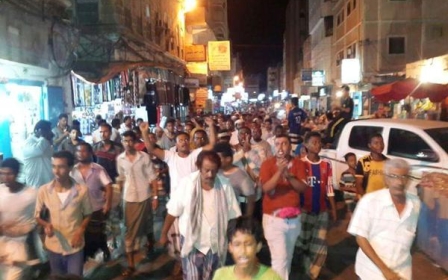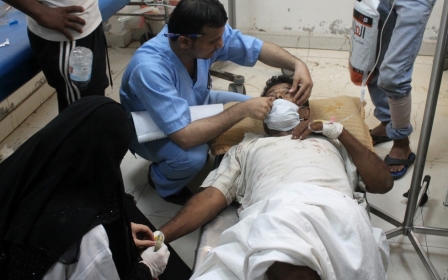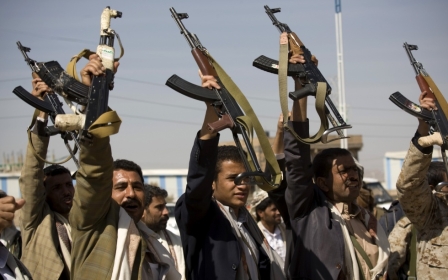Saudi-led coalition sends ground troops to Aden: Yemen officials
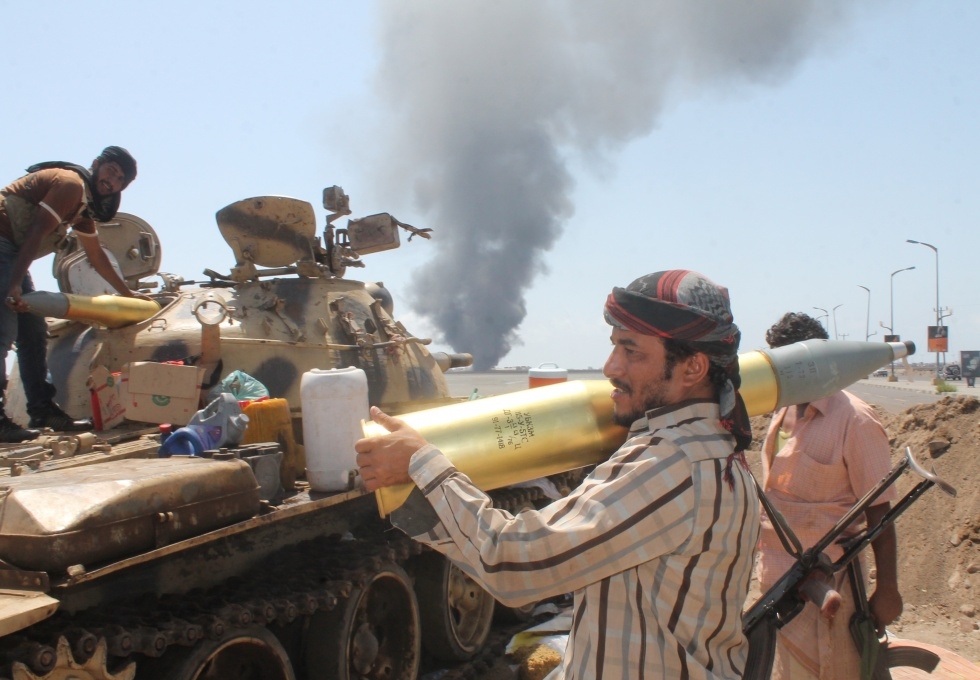
Yemeni officials stated on Sunday that ground troops from the Saudi-led coalition had touched down in south Yemen, in statements quickly denied by Saudi Arabia.
A Yemeni government official told AFP that the Saudi-led coalition had sent “limited” ground troops into the southern port city of Aden on Sunday, saying that "another force" was also on its way.
A second Yemeni official told the Associated Press that at least 20 soldiers from the Arab coalition had entered the city on a "reconaissance mission".
Inside Aden, the official spokesperson for the armed anti-Houthi movement told Anadolu Agency that the group had managed to seize all of Aden's airport from the Houthis "with the participation of a limited Arab force".
However, Saudi Arabia quickly denied the veracity of the reports from inside Yemen - coalition spokesperson General Assiri said in a statement that "there are no foreign forces in Aden, but the coalition continues to help fight against the Houthi militia."
Despite the contradictory reports, this is the first time that Yemeni officials have spoken of the presence of foreign troops on the ground in Yemen.
Saeed al-Batati, an MEE contributor on the ground, said that Emirate and Sudanese troops are fighting against the Houthis at the city's airport, parts of which were seized by anti-Houthi fighters earlier this week.
It is unclear how the troops would have entered Yemen, but there were reports that they had entered from Djibouti, the small African country whose coast lies some 450 kilometres from Yemen across the Gulf of Aden.
On 26 March, Saudi Arabia began leading a coalition in an air bombing campaign targeting Yemen’s Houthi militias, who had effectively deposed the elected President Abd Rabbuh Mansour Hadi.
The airstrikes, which aim to wipe out Houthi weapons stores and degrade their military capabilities, have been backed by shelling by warships, thought to be Egyptian, stationed just off the coast of Aden.
There has been intense speculation since the start of the campaign about the likelihood of it escalating into a ground war.
The Saudi official leading the campaign, dubbed Operation Decisive Storm, has repeatedly said that while the coalition has no plans to send in ground troops, they are prepared to do so “if necessary”.
Aden is a strategically crucial city on the southern tip of Yemen – just off the coast lies the Bab al-Mandab Strait, a key shipping lane that connects the oil-producing Persian Gulf with Egypt via the Suez Canal.
More than 3.4 billion barrels of oil are thought to be transported via the strait every day, and its closure would have a vast impact on international commerce and oil prices.
Houthi fighters began advancing towards the city's coastline months ago, recently seizing an army base overlooking the port.
Many within Yemen say they think fears for the safety and effectiveness of the port are driving the conflict in Aden and the war as a whole.
The month-long Operation Decisive Storm came to an end on 21 April, to be replaced by Operation Restore Hope.
Many hoped the new operation would spell a ceasefire, but airstrikes resumed within hours of the announcement amid reports of Houthi violations of the Saudi conditions.
'It's a big prison here'
Residents of the city of Aden have effectively been under siege since the bombing began, with airports closed and warships stationed off the coast stopping and searching any approaching vessels.
There have been dire warnings of an impending humanitarian catastrophe in the city, where supporters of the southern independence movement say Houthi fighters have been shelling residential areas and randomly arresting people suspected of links to the armed resistance.
"They are starving us," Mohammed Matar, a long-time resident of the city, told the Associated Press on Saturday.
Matar said he and his family had been surviving off canned tuna, dates and rice.
Bread is in extremely short supply after the Saudi-led coalition pounded the city's main wheat silos, where Houthi fighters were hiding out.
An estimated 8,000 kilos of flour were delivered to the city on Sunday, but with a shortage of electricity and fuel, a struggle remained to cook and distribute much-needed bread, a staple of the local diet.
"It's a big prison here," said Matar. "The war in front of us and the sea behind us. We have become like beggars, waiting for someone to drop us a piece of bread and water."
New MEE newsletter: Jerusalem Dispatch
Sign up to get the latest insights and analysis on Israel-Palestine, alongside Turkey Unpacked and other MEE newsletters
Middle East Eye delivers independent and unrivalled coverage and analysis of the Middle East, North Africa and beyond. To learn more about republishing this content and the associated fees, please fill out this form. More about MEE can be found here.


